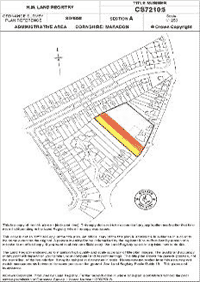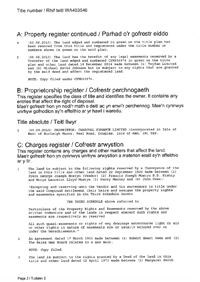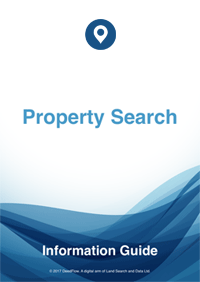Find Land Registry Title Number
The Title Number for a property registered with the Land Registry is found at the top of each page of the Title Register and Title Plan. Regard should be had, however, to the possibility that more than one Title may have been created for the property, e.g. where there is a freehold and leasehold registration, or where Legal Interests have been created and registered, such as Fishing Rights.
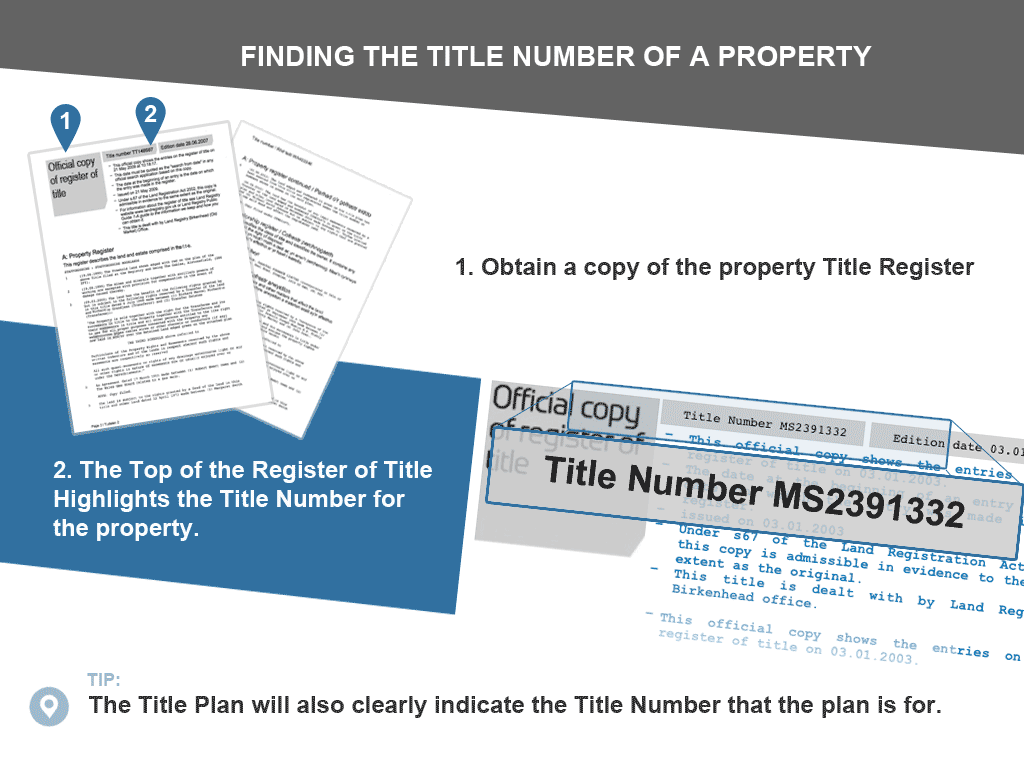
Contents
What is a Land Registry Title Number
Whenever a property is registered for the first time it is allocated a unique Title Number by the Land Registry. The purpose of the Title Number is to distinguish not only each property from other properties but also to distinguish the different Estates in Property from other Estates held for that property.
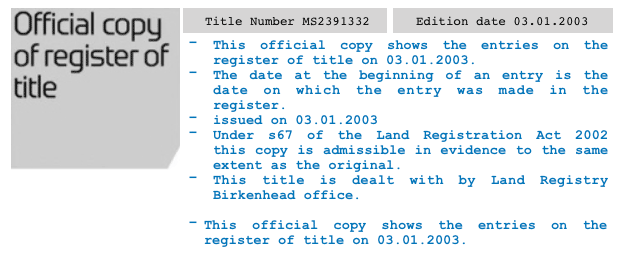
Legal Estates in Land
There are two legal estates that can be held for a property. These are:
- Fee simple absolute in possession
- Term of years absolute
They are compulsorily registrable whenever there is a registrable disposition such as a sale or mortgage.
Legal Interests in Land
Legal Interests in land such as Easements and Profits a Prendre in Gross may also be registered with their own Titles and unique Title Numbers.
For example:
1. A Profit a Prendre in Gross is the right to take something from someone else's land, e.g. fish. The creation of Fishing Rights by Deed for more than 7 years may be, and preferable should be, registered.
2. The creation of a Legal Easement. Easements will normally not need their own Title Number, but if the land benefitting from the easement is not already registered then a unique Title will be created. Where the properties are already registered Details of the legal easement will appear in the Title Register's C section of the servient tenement (the land burdened by the easement) and in the A section of the dominant tenement (the land with the benefit of the easement).
Where to Find the Title Number
The Title Number is found on the top of each page of the Title Register and also at the top of the Title Plan. This is so whether the property is freehold or leasehold, and whether it applies to a legal estate in land or a legal interest in land. Each Title Number is unique and is not repeated for another property or for another estate or interest in land. Thus the Title Number is reliable in identifying ownership of each estate or interest in a property.
How to Ensure you choose the correct Title Number
You should remember that there may be more than one Title Number for a property, depending on whether there are freehold and leasehold owners, and whether or not other interests in the land have been created. The main body of the Title Register is split into 3 sections, A, B and C. The A section states whether the Title Register is for the freehold or leasehold estate or whether it is for a registrable interest. So when looking for the Title Number you should also look at Section A. Two examples appear below, to demonstrate.
Extract from the A Section of a Freehold Title Register:
A: PROPERTY REGISTER
This register describes the land and estate comprised in the title
MERSEYSIDE : LIVERPOOL
1 (03.01.2003) The Freehold land shown edged with red on the plan of the above Title filed at the Registry and being 67 Stepney Street, Wavertree, Liverpool (L13 67N).
Extract from the A Section of a Fishing Rights Title Register:
A: Property Register
1 (11.01.2007) The Leasehold profit a prendre in gross being the right to fish with rod and line (but not more than three rods at any one time) and to take and carry away fish from the western moiety of the River Stint, Leverton, Ulverston between the points lettered A and B in blue on the plan of the above title filed at the Registry.
Title Register
The Land Registry Title Register holds data relating to the property ownership, purchase price, mortgage, tenure, covenants, rights of way, leases and class of title.
£19.95Title Plan
The Title Plan shows an outline of the property and its immediate neighbourhood, and uses colours to identify rights of way, general boundaries and land affected by covenants.
£19.95Associated Documents
Deeds creating Restrictions, Covenants, Easements, etc. are often kept digitally by the Land Registry and made available for sale due to their invaluable detail and content to assist in further understanding the Restrictions, etc.
£29.95
